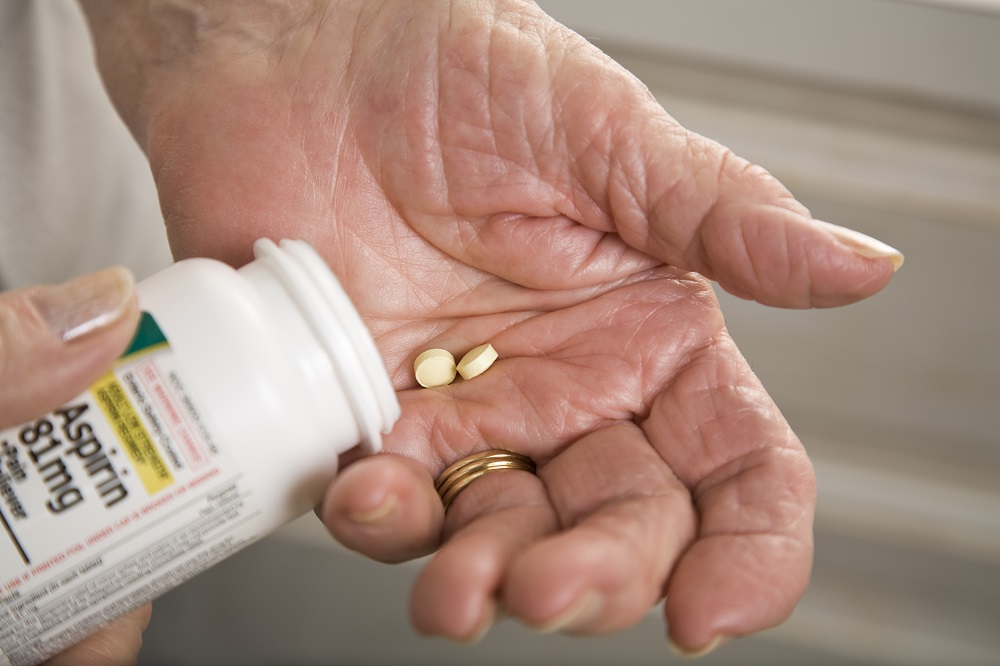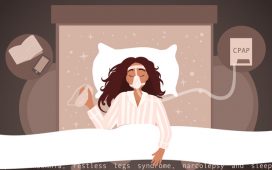What a Pill!
That low-dose aspirin that almost 6.6 million U.S. adults take daily to protect against heart disease and stroke may be, at best, a waste of money and at worst, seriously risky. That’s according to multiple studies, including guidelines recently presented by the American College of Cardiology and the American Heart Association (ACC/AHA).1, 2
You may know this, but do your patients know this new info? That’s the point here. It’s important that you get the word out. When you grab a patient’s chart, knock on the examining room door, and walk in, you might want to consider saying, “How are you? And are you still taking a daily low-dose aspirin?” Phrase your opening line as you like – as long as you start a conversation about the new guidelines!
Aspirin ~ Cliffs Notes Version
In a March 2019 statement, the ACC/AHA officially recommended that low-dose aspirin should not be administered on a routine basis for primary prevention of heart disease among adults 70 years of age or older, or at any age who are at increased bleeding risk. Low-dose aspirin may be considered for primary prevention in certain adults between the ages of 40 and 70 who are not at increased risk for bleeding.3
“Clinicians should be very selective in prescribing aspirin for people without known cardiovascular disease,” cautions Roger S. Blumenthal, MD, FACC, co-chair of the 2019 ACC/AHA Guideline on the Primary Prevention of Cardiovascular Disease. “It’s much more important to optimize lifestyle habits and control blood pressure and cholesterol as opposed to recommending aspirin. Aspirin should be limited to people at the highest risk of cardiovascular disease and a very low risk of bleeding.” 4
Studies of Note
2019 ACC/AHA Guideline authors attribute this significant update to recent research that suggests bleeding risks associated with aspirin can outweigh benefits. One study involved a randomized, double-blind, placebo-controlled trial conducted at Monash University in Australia. Researchers recruited nearly 20,000 persons in Australia and the United States who were 70 years of age or older and did not have cardiovascular disease, dementia, or physical disability. Participants were randomly assigned to receive 100 mg per day of enteric-coated aspirin or placebo orally. After nearly five years, the researchers concluded that there was no observed difference between the two groups when it came to “disability-free survival.” However, researchers did find that aspirin use in healthy elderly persons led to a higher rate of major hemorrhage than persons receiving the placebo.5
Another study, producing data from the National Health Interview Survey (NHIS) and including 14,328 survey participants with an average age of 57.5 years, was one of the first studies to stress an increased need for communication between patient and doctor on the topic of aspirin and heart disease prevention.
Here’s what the NHIS determined– and why doctor/patient communication is essential: 6
- Among adults age 40 and older who did not have heart disease, 23.4 percent report taking daily aspirin to protect their hearts. That translates to approximately 29 million Americans.
- Of these Americans, 22 percent, or about 6.6 million, take aspirin without their doctor’s recommendation.
- Nearly half, or 44 percent, of adults aged 70 or older without cardiovascular disease said they were using aspirin to prevent heart disease. And having a history of ulcers didn’t seem to prevent these seniors from taking a daily aspirin.
For a few years now the advice has been clear: Low-dose daily aspirin comes with serious restrictions. In line with this advice, the NIHS study lead author, MD, a senior internal medicine resident at BIDMC and fellow at Harvard Medical School, recommends spreading his study’s findings, discussing evidence with physicians, and educating patients. As the doctor recently said in a statement, “Our findings show a tremendous need for health care practitioners to ask their patients about ongoing aspirin use and to advise them about the importance of balancing the benefits and harms, especially among older adults and those with prior peptic ulcer disease .”
Resources
5) J.J. McNeil, R.L. Woods, M.R. Nelson, et al. Effect of aspirin on disability-free survival in the healthy elderly N Engl J Med, 379 (16) (2018 18), pp. 1499-1508.








